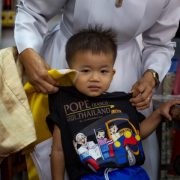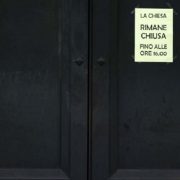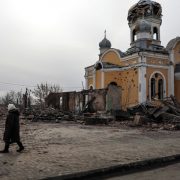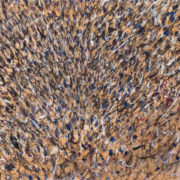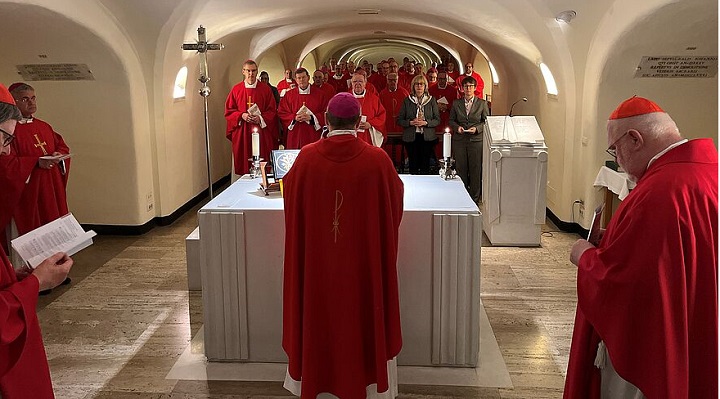
The enigmatic political formula with which Aldo Moro stated the possible convergence of Italy’s two major political forces can perhaps be used, by analogy, to point at the distance that remains between the German episcopate and the Vatican curia, but also at the force of attraction that prevents both symbiosis and rupture.
The 62 prelates of Germany, in their ad limina visit (Nov. 14-18), maintained the substance of the conclusions, not yet fully final, of the Synodaler Weg. The Vatican curia and the pope made no secret of their disagreement and perplexity.
But there has been no final confrontation. “I am not upset and it is indeed false to speak of a so-called showdown in Rome” (Msgr. Georg Bätzing, president of the bishops’ conference, final press conference). Without diminishing the suspicion in the curia about reforms and the fear of seeing an uncontrolled expansion of German demands beyond the borders.
The tension remains and disagreements are not over. New confrontations are to be expected. It is good that they remain: “The Holy Father has shown us clearly how tensions are necessary, what tensions he is under and how courage and patience are important to arrive at solutions” (Bätzing).
Pilgrimage and evangelization
Both sides recognized each other in an open and fraternal discussion. Both are eager for their arguments to be understood and taken into account. “Thus, the importance and also the urgency of defining and deepening some of the issues highlighted emerged, for example: those referring to church structures, sacred ministry and access to it, Christian anthropology, etc. At the same time, the full awareness was manifested on the part of all that they are on a journey with the entire holy and patient people of God even in the confrontation between different positions” (joint communiqué after the meeting with Vatican offices).
It is not without significance that the ad limina visit has been experienced by those involved as a pilgrimage to the roots of faith. The initial Mass in front of Peter’s tomb in the Vatican Grottoes and the subsequent Masses at St. Mary Major, St. Paul Outside the Walls and St. John Lateran, build a texture on which the major concern of both the bishops as well as the pope and his collaborators is grafted: the proclamation of the Gospel today in contexts of post-modern society, such as Germany.
With respect to all the issues on the table – Bätzing said – the underlying issue is evangelization in a secular context. The emphasis returned in the various meetings: “many interventions pointed to the centrality of evangelization and mission as the ultimate goal of the ongoing processes” (joint communiqué). “With the synodal journey we want to renew the task of speaking about God in public. Our society, as secular and changing as it is, needs religiosity, needs public witness to the Christian faith and new impulses to highlight the question of God” (Bätzing in the introduction to the interdicasterial meeting).
All of the synod’s four areas of research (power and responsibility in the Church, the role of women, priests and their experience, and love and sexuality), like the seven documents approved so far (theology of the synodal journey, exercise of power in the Church, laity in the appointment of bishops, the exercise of synodality, women in ministries and church offices, homosexuality, priests), have their anchor in the urgency of evangelization.
Quaestiones disputatae
No less obvious were the points of disagreement that emerged in the meetings: the suspected schism, the hypothesis of a moratorium, the situation in Cologne, etc.
“The Catholic Church in Germany does not pursue an autonomous path and will not make any decisions that would be possible only in the context of the universal Church. But the Catholic Church in Germany wants to and must give answers to the questions posed by believers.” “Schism is not an option and never has been.” “Those who speak of schism and of a national Church do not know either the Catholics or the German bishops. I am saddened by the spread that this word has achieved, with which they try to deny us catholicity and the will to remain united to the universal Church.”
And to leave no doubt, Bätzing goes on to quote Pope Francis’ quip: “Unfortunately, this also includes the rather inaccurate comparison with a ‘good Protestant Church.'”
When, during the interdicasterial meeting, Card. Marc Ouellet, at the end of his speech, launched the hypothesis of a moratorium of the German Synodal Way a buzz of dissent arose in the assembly and numerous interventions, even by the most prudent bishops, stopped the proposal. It was perhaps the moment of most vivid tension.
The curia has tried to place the German Synodal Way behind the universal synod, steering it onto a dead end for the purpose of dissolving its specific demands. The bishops sensed the impossible consensus of a similar solution in Germany. Thus, the joint communiqué says: “In this perspective of open and fraternal sharing, some proposals were made, such as that of applying a moratorium to the German Synodal Way, which did not find approval, and that of favoring an additional reflection and mutual listening in the light of the perplexities that emerged.”
Another critical moment occurred during the meeting with the pope, when a bishop directly raised the question of Card. Woelki, the hotly contested archbishop of Cologne. His letters of resignation have long been on the pope’s desk, but he refuses to be influenced by immediate pressure. A position he also reiterated before the bishops. But the matter remains very thorny. Bishop Bätzing in the final press conference referred to it as a widely shared request.
Other moments of tension occurred with regard to the role of the laity in ecclesial decision-making (the accusation of parliamentarism resounded), on the synod’s dependence on the “spirit of the times” and the conditioning of environmental culture, on contemporary anthropology, which, as was the case with Luther and the anthropology of humanism, could lead to fractures that could not be overcome.
More effective is the Vatican criticism about the inattention that experienced the pope’s letter to German Catholics. It is true that it was presented and discussed within the framework of the bishops’ conference and that it had a circulation of 80,000 copies entering as a preamble in the statutes of the Synodal Way. It is also true that it was not heard and discussed in the assembly.
The bishops, in turn, denounced a Roman underestimation of the disastrous effects of sexual abuse on ecclesial credibility and the delay in dealing consistently with the role and tasks, including ministerial ones, of women. “In my personal opinion,” Bätzing said, “(it is) the decisive issue for the future.
Dialogue that cannot be tamed
The German Synodal Way will not be stopped – and the texts approved and under approval will not remain on paper. Particularly with regard to the permanent “synodal council” that is supposed to support the bishops in making the most challenging decisions.
However, the maneuver room for the bishops is narrow. They are talking about this in the DBK Permanent Council and will discuss it again in the synod presidency.
For Rome, the meetings with the German bishops have been a school of a dialogue that cannot be tamed. It will be the successful outcome of the universal synod that will make clear the compatibility of the universality of the Church with paths of local churches like Germany.


